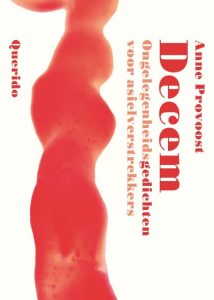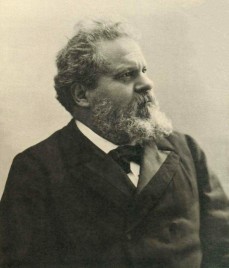Fleurs du Mal Magazine


Or see the index
 Women Poet’s Prize and Nan Shepherd Prize winner: Nina Mingya Powles publishes a much-anticipated second collection in July 2025
Women Poet’s Prize and Nan Shepherd Prize winner: Nina Mingya Powles publishes a much-anticipated second collection in July 2025
– In the Hollow of the Wave examines Orientalism, art and artmaking in a time of ecological crisis in distinctive poems that are elemental and tactile, shaped by memory and landscapes of the body.
Powles’ debut poetry collection, Magnolia, was shortlisted for the Forward Prize for Best First Collection and the Ondaatje Prize.
 Nina Mingya Powles (born 1993) is a New Zealand poet and essayist. Born in Wellington, Powles has spent time living in Shanghai and London.
Nina Mingya Powles (born 1993) is a New Zealand poet and essayist. Born in Wellington, Powles has spent time living in Shanghai and London.
Her poetry and essay collections are inspired by nature and her Chinese – Malaysian heritage, and she has received a number of notable awards including the inaugural Women Poets’ Prize in 2018.
In the Hollow of the Wave (Poems)
by Nina Mingya Powles
Nine Arches Press
ISBN: 9781916760226
Publication date: 24th July 2025
Format: Paperback
72 pp
ISBN: 9781916760226
Price: £11.99
•fleursdumal.nl magazine
More in: #Editors Choice Archiv, - Book News, - Bookstores, Archive O-P, Archive O-P, Grimm, Andersen e.o.: Fables, Fairy Tales & Stories
 Een jongeman meent zich alles nog te herinneren: hij stapte in een bootje op zoek naar een land met een tandarts, zijn vrouw bleef in het water achter en werd door vissers begraven, en er was ook nog ergens een kind.
Een jongeman meent zich alles nog te herinneren: hij stapte in een bootje op zoek naar een land met een tandarts, zijn vrouw bleef in het water achter en werd door vissers begraven, en er was ook nog ergens een kind.
Door de shock verliest hij het zicht op de gebeurtenissen, maar zijn verblijfsvergunning hangt af van hoe geloofwaardig zijn rouw klinkt.
In een reeks ongelegenheidsgedichten veegt hij zijn ondervragers met cynische precisie de mantel uit.
Decem
Ongelegenheidsgedichten voor asielverstrekkers
Auteur: Anne Provoost
Poëzie
Bindwijze: Paperback
80 pagina’s
Druk 1e
Taal: Nederlands
Uitgeverij: Querido
NUR: 306
Paperback
ISBN: 9789025317836
Publicatiedatum: 26-09-2024
Prijs: € 20,00
• fleursdumal.nl magazine
More in: #Modern Poetry Archive, - Book News, - Bookstores, Archive O-P, Archive O-P

The Revelation
An idle poet, here and there,
Looks round him; but, for all the rest,
The world, unfathomably fair,
Is duller than a witling’s jest.
Love wakes men, once a lifetime each;
They lift their heavy lids, and look;
And, lo, what one sweet page can teach,
They read with joy, then shut the book.
And some give thanks, and some blaspheme
And most forget; but, either way,
That and the Child’s unheeded dream
Is all the light of all their day.
Coventry Patmore
1823–1896
The Revelation
• fleursdumal.nl magazine
More in: # Classic Poetry Archive, Archive O-P, Archive O-P

The Toys
My little Son, who look’d from thoughtful eyes
And moved and spoke in quiet grown-up wise,
Having my law the seventh time disobey’d,
I struck him, and dismiss’d
With hard words and unkiss’d,
His Mother, who was patient, being dead.
Then, fearing lest his grief should hinder sleep,
I visited his bed,
But found him slumbering deep,
With darken’d eyelids, and their lashes yet
From his late sobbing wet.
And I, with moan,
Kissing away his tears, left others of my own;
For, on a table drawn beside his head,
He had put, within his reach,
A box of counters and a red-vein’d stone,
A piece of glass abraded by the beach
And six or seven shells,
A bottle with bluebells
And two French copper coins, ranged there with careful art,
To comfort his sad heart.
So when that night I pray’d
To God, I wept, and said:
Ah, when at last we lie with tranced breath,
Not vexing Thee in death,
And Thou rememberest of what toys
We made our joys,
How weakly understood
Thy great commanded good,
Then, fatherly not less
Than I whom Thou hast moulded from the clay,
Thou’lt leave Thy wrath, and say,
“I will be sorry for their childishness.”
Coventry Patmore
(1823–1896)
The Toys
• fleursdumal.nl magazine
More in: # Classic Poetry Archive, Archive O-P, Archive O-P, Children's Poetry

Petrarca
If far from turbid thoughts and gloomy mood
Some smiling day should see my wish fulfilled
Where breathe the vales with gentle brooks enrilled
The soft air of my Tuscan neighbourhood,
There, where is heard no more the garrulous brood
Of thoughtless minds, in deep oblivion stilled,
Would I to thee my heart’s pure altar build
In the green blackness of the tangled wood.

There with the dying splendours of the sun
Thy song should glow amid the flowers springing
On breezy banks where whispering streams do run;
As if, still sweeter sounds and odours flinging
Upward to heaven when the day is done,
A nightingale from bough to bough were singing.
Giosuè Carducci
(1835 – 1907)
Petrarca
• fleursdumal.nl magazine
More in: # Classic Poetry Archive, Archive C-D, Archive C-D, Archive O-P, Petrarca, Francesco

Seulette suis…
Seulette suis, et seulette veux être,
Seulette m’a mon doux ami laissée.
Seulette suis, sans compagnon ni maître,
Seulette suis, dolente et courroucée,
Seulette suis, en langueur malaisée,
Seulette suis, plus que nulle égarée,
Seulette suis, sans ami demeurée.
Seulette suis, à huis ou à fenêtre,
Seulette suis, en un anglet muciée,
Seulette suis, pour moi de pleurs repaître,
Seulette suis, dolente ou apaisée,
Seulette suis, rien qui tant messiée,
Seulette suis, en ma chambre enserrée,
Seulette suis, sans ami demeurée.
Seulette suis, partout et en tout aître,
Seulette suis, que je marche ou je siée,
Seulette suis, plus qu’autre rien terrestre,
Seulette suis, de chacun délaissée,
Seulette suis, durement abaissée,
Seulette suis, souvent toute éplorée,
Seulette suis, sans ami demeurée.
Princes, or est ma douleur commencée :
Seulette suis, de tout deuil menacée,
Seulette suis, plus teinte que morée,
Seulette suis, sans ami demeurée.
Christine de Pisan
(1364/1365 – 1430)
Seulette suis…
Poéme
• fleursdumal.nl magazine
More in: # Classic Poetry Archive, Archive O-P, Archive O-P, Pisan, Christine de, The Ideal Woman

The Sleeper
At midnight, in the month of June,
I stand beneath the mystic moon.
An opiate vapor, dewy, dim,
Exhales from out her golden rim,
And softly dripping, drop by drop,
Upon the quiet mountain top,
Steals drowsily and musically
Into the universal valley.
The rosemary nods upon the grave;
The lily lolls upon the wave;
Wrapping the fog about its breast,
The ruin moulders into rest;
Looking like Lethe, see! the lake
A conscious slumber seems to take,
And would not, for the world, awake.
All Beauty sleeps!—and lo! where lies
Irene, with her Destinies!
Oh, lady bright! can it be right—
This window open to the night?
The wanton airs, from the tree-top,
Laughingly through the lattice drop—
The bodiless airs, a wizard rout,
Flit through thy chamber in and out,
And wave the curtain canopy
So fitfully—so fearfully—
Above the closed and fringéd lid
’Neath which thy slumb’ring soul lies hid,
That, o’er the floor and down the wall,
Like ghosts the shadows rise and fall!
Oh, lady dear, hast thou no fear?
Why and what art thou dreaming here?
Sure thou art come o’er far-off seas,
A wonder to these garden trees!
Strange is thy pallor! strange thy dress!
Strange, above all, thy length of tress,
And this all solemn silentness!
The lady sleeps! Oh, may her sleep,
Which is enduring, so be deep!
Heaven have her in its sacred keep!
This chamber changed for one more holy,
This bed for one more melancholy,
I pray to God that she may lie
Forever with unopened eye,
While the pale sheeted ghosts go by!
My love, she sleeps! Oh, may her sleep,
As it is lasting, so be deep!
Soft may the worms about her creep!
Far in the forest, dim and old,
For her may some tall vault unfold—
Some vault that oft hath flung its black
And wingéd pannels fluttering back,
Triumphant, o’er the crested palls
Of her grand family funerals—
Some sepulchre, remote, alone,
Against whose portals she hath thrown,
In childhood, many an idle stone—
Some tomb from out whose sounding door
She ne’er shall force an echo more,
Thrilling to think, poor child of sin!
It was the dead who groaned within.
Edgar Allan Poe
(1809 – 1849)
The Sleeper
• fleursdumal.nl magazine
More in: - Archive Tombeau de la jeunesse, Archive O-P, Archive O-P, Edgar Allan Poe, Poe, Edgar Allan, Poe, Edgar Allan, Tales of Mystery & Imagination

Comme surpris
Comme surpris
Et entrepris
De vostre amour,
Je me rens pris
En vo pourpris,
Dame d’onnour.
Si ne mespris
Quant j’entrepris
Si haulte honnour
Comme surpris.
Mais en despris
Ne m’ait le pris
De vo valour;
Car j’ay apris
Les biens compris
En vo doulçour
Comme surpris.
Christine de Pisan
(1364/1365 – 1430)
Comme surpris
Rondeaux
• fleursdumal.nl magazine
More in: # Classic Poetry Archive, Archive O-P, Archive O-P, Pisan, Christine de, The Ideal Woman

Belle, ce que j’ay requis
Belle, ce que j’ay requis
Or le vueilliez ottroier,
Car par tant de fois proier
Bien le doy avoir conquis.
Je l’ay ja si long temps quis,
Et pour trés bien emploier,
Belle, ce que j’ay requis.
Se de moy avez enquis,
Ne me devez pas noyer
Mon guerdon, ne mon loier;
Car par raison j’ai acquis,
Belle, ce que j’ay requis.
Christine de Pisan
(1364/1365 – 1430)
Belle, ce que j’ay requis
Rondeaux
• fleursdumal.nl magazine
More in: # Classic Poetry Archive, Archive O-P, Archive O-P, Pisan, Christine de, The Ideal Woman
Award-winning poet Maya C. Popa suggests that our restless desires are inseparable from our mortality in this pressing and precise collection.
 Rooting out profound meaning in language to wrench us from the moorings of the familiar and into the realm of the extraordinary, the volume asks, how do we articulate what’s by definition inarticulable? Where does sight end and imagination begin?
Rooting out profound meaning in language to wrench us from the moorings of the familiar and into the realm of the extraordinary, the volume asks, how do we articulate what’s by definition inarticulable? Where does sight end and imagination begin?
Lucid and musically rich, these poems sound an appeal to a dwindling natural world and summon moments from the lives of literary forbearers―John Milton’s visit to Galileo, a vase broken by Marcel Proust―to unveil fresh wonder in the unlikely meetings of the past.
Popa dramatizes the difficulties of loving a world that is at once rich with beauty and full of opportunities for grief, and reveals that the natural arc of wonder, from astonishment to reflection, more deeply connects us with our humanity.
Maya C. Popa is a naturally gifted poet, lucidly engaged with the most profound questions we face in our collective responsibilities and our relations with each other. She writes with love and wonder of a world poised at a perilous moment: “My children, will they exist by the time / it’s irreversible?” she asks. “Will they live / astonished at the thought of ice / not pulled from the mouth of a machine?”
To read her poems is to pause again and again at the precision of imagery, breadth of ideas, and the warmth and generousness of her lyric voice.
Maya C. Popa is the poetry reviews editor at Publishers Weekly and teaches poetry at New York University.
Wound Is the Origin of Wonder: Poems
by Maya C. Popa (Author)
Publisher: W. W. Norton & Company
November 8, 2022
Language: English
Hardcover: 96 pages
ISBN-10: 1324021365
ISBN-13: 978-1324021360
Hardcover $21.49
Paperback $15.99
• fleursdumal.nl magazine
More in: #Modern Poetry Archive, - Book News, - Bookstores, Archive O-P, Archive O-P, Popa, Maya C.

Il faut tout perdre
Il faut tout perdre, il faut vous obéir.
Je vous les rends ces lettres indiscrètes,
De votre cœur éloquents interprètes,
Et que le mien eût voulu retenir ;
Je vous les rends. Vos yeux à chaque page
Reconnaîtront l’amour et son langage,
Nos doux projets, vos serments oubliés,
Et tous mes droits par vous sacrifiés.
C’était trop peu, cruelle Éléonore,
De m’arracher ces traces d’un amour
Payé par moi d’un éternel retour ;
Vous ordonnez que je vous rende encore
Ces traits chéris, dont l’aspect enchanteur
Adoucissait et trompait ma douleur.
Pourquoi chercher une excuse inutile,
En reprenant ces gages adorés
Qu’aux plus grands biens j’ai toujours préférés ?
De vos rigueurs le prétexte est futile.
Non, la prudence et le devoir jaloux
N’exigent pas ce double sacrifice.
Mais ces écrits qu’un sentiment propice
Vous inspira dans des moments plus doux,
Mais ce portrait, ce prix de ma constance,
Que sur mon cœur attacha votre main,
En le trompant, consolaient mon chagrin :
Et vous craignez d’adoucir ma souffrance ;
Et vous voulez que mes yeux désormais
Ne puissent plus s’ouvrir sur vos attraits,
Et vous voulez, pour combler ma disgrâce,
De mon bonheur ôter jusqu’à la trace.
Ah ! j’obéis, je vous rends vos bienfaits.
Un seul me reste, il me reste à jamais.
Oui, malgré vous, qui causez ma faiblesse,
Oui, malgré moi, ce cœur infortuné
Retient encore et gardera sans cesse
Le fol amour que vous m’avez donné.
Évariste de Parny
(1753-1814)
Il faut tout perdre
Élégies (1784)
• fleursdumal.nl magazine
More in: # Classic Poetry Archive, Archive O-P, Archive O-P

Aimer est un destin charmant
Aimer est un destin charmant ;
C’est un bonheur qui nous enivre,
Et qui produit l’enchantement.
Avoir aimé, c’est ne plus vivre,
Hélas ! c’est avoir acheté
Cette accablante vérité,
Que les serments sont un mensonge,
Que l’amour trompe tôt ou tard,
Que l’innocence n’est qu’un art,
Et que le bonheur n’est qu’un songe.
Évariste de Parny
(1753-1814)
Aimer est un destin charmant
Élégies (1784)
• fleursdumal.nl magazine
More in: # Classic Poetry Archive, Archive O-P, Archive O-P
Thank you for reading Fleurs du Mal - magazine for art & literature